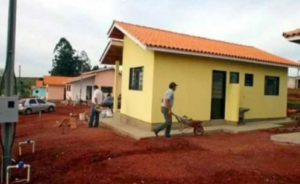Lesson 10 –
John 2:13-22 NRSV
13 The Passover of the Jews was near, and Jesus went up to Jerusalem. 14 In the temple he found people selling cattle, sheep, and doves, and the money changers seated at their tables. 15 Making a whip of cords, he drove all of them out of the temple, both the sheep and the cattle. He also poured out the coins of the money changers and overturned their tables. 16 He told those who were selling the doves, “Take these things out of here! Stop making my Father’s house a marketplace!” 17 His disciples remembered that it was written, “Zeal for your house will consume me.” 18 The Jews then said to him, “What sign can you show us for doing this?” 19 Jesus answered them, “Destroy this temple, and in three days I will raise it up.” 20 The Jews then said, “This temple has been under construction for forty-six years, and will you raise it up in three days?” 21 But he was speaking of the temple of his body. 22 After he was raised from the dead, his disciples remembered that he had said this; and they believed the scripture and the word that Jesus had spoken.
Background
John is quite a shady book! It starts out with a reminder that “in the beginning was the word,” which may feel harmless. But this phrasing was a direct threat to an existing executive order that suggested that “in the beginning was Caesar.” John is an explicitly (and sometimes implicitly) anti-oppression gospel. You will find that this gospel often narrates the story on top of telling the story (something we will see in this passage today). In your own devotional period, read the first and second chapter of John. Why do you think Jesus’ first recorded miracle is the water-into-wine scene? How do you see joy as a response to oppression? Does joy ever exist just for its own sake?
Today’s lesson will focus on the difference between faith-based capitalism and mutual aid.
Read the scripture out loud together. What are some advantages of being connected to a faith community? Besides the spiritual element?
What’s happening during this passage?
Near the Passover, Jesus saw people selling cattle, sheep, and doves. The moneychangers (something like cashiers) were sitting at their tables. Jesus made a whip out of cords (a weapon!) and shooed them out of the temple. He told the people to “take these things out of here, stop making my Father’s house a marketplace! The faithful disciples remembered that it had been prophesied that “zeal for your house will consume me,” and then said “what sign can you show for doing this?” To which Jesus said, “destroy this temple, and in three days I will raise it up.” But this confused the people who said, “This temple has been under construction for 46 years, you think you can fix it in three days?” The writer of John inserts the tidbit that “he was speaking of the temple of his body.” Later on, the disciples remembered this interaction and “believed the scripture and the word that Jesus had spoken.” This is one of many hints that we have in this gospel that the text was written after Jesus was resurrected, not in real time. It includes flash-forwards.
What was offensive about this scene to Jesus?
Jesus could not believe that the temple was being turned into a marketplace. Doing so offended him. He made it personal too! This was not just any house. It was “my Father’s house!” The context matters, too. It was a significant holiday in the Jewish calendar. Passover commemorates the survival of the enslaved Hebrews under Pharaoh’s rule. Under the plagues, the enslaved Hebrew never suffered God’s wrath. Especially in the final plague (death of the first born son), the Jewish people were spared by the painting of the blood of the lamb over their doorways.
The Passover represents the way that the Angel of Death “passed-over” the homes of those who were innocent. As the story goes, God only exacted punishment over those who directly hand in the exploitation of the People. Somehow, though, in the course of years, this meaningful holiday turned into a capitalist celebration. People forgot what the Passover meant. It was no longer about praising a God who held us through a difficult time. Instead, it was a time to buy offerings. And people were buying offerings right outside the temple! It seems like the point was missed.
Contrasted with the other story in this chapter, it is clear that exploitation of vulnerable people is more offensive to Jesus than partying at weddings.
How would you characterize Jesus here?
He’s not docile, meek, or passive. This is an angry Jesus. A frustrated Jesus. He raised his voice. He may even have snapped someone with the whip of cords. Jesus is disgusted at the idea of exploitation, but certainly in the name of God.
Later on in the book of Acts (specifically chapter 2), we have a vision of a church where people are sharing together. People gathered money to take care of each other, and even sold possessions for the good of the community. We have other examples of people using money to help spread the good news. It costs money to do “good works” like Tabitha in Acts 9. As long as we have money and bills to pay, there will be a need for raising funds. But, asking people to pay for indulgences and offerings in order to have their soul saved is exploitative. God does not require us to fill out tax forms in order to be saved. God requires us to be faithful and to offer what we are able in service of the community. And anyone can be faithful with what you have!
What questions do you still have of this scripture? How will you commit to journeying with this text this week?
Connection to Today’s World
A church in Brazil has launched a program to build homes for people using tithes and offerings. In Rio de Janeiro, the Assemblies of God church has built several homes and given to mostly women and unemployed people. The pastor said they also rely on labor from church members who volunteer their services as “architects, bricklayers, painters and carpenters.” The resources already exist within the community; they just had to focus on a project.
At Concord, we are no strangers to the project of mutual aid. Our own credit union was started when Black people could not get monetary aid in the form of loans and mortgages. Today, we stand in that legacy by serving as a fiscal hub that can distribute loans to local communities in our neighborhood. As a testament to the need, the credit union has exhausted the funds designated for this project. This is not a bad thing! It is a reminder that there is always need among us. We might not have the dollars, but we might have the skill of administrative work! We might not have a house to build, but maybe we can organize tutoring for children. We can all do something to the glory of God. That’s our offering.
Journal: Can you think of a non-monetary offering you would give? What skill can you offer to the community?
Closing: Listen to “Jesus Can Work It Out,” Walter Hawkins and the Love Center Choir.
Jesus can work it out That problem that I had
I just couldn’t seem to solve
I tried and I tried
Kept getting’ deeper involved
I turned it over to Jesus
And I stopped worrying’ about it
I turned it over to the Lord
And He worked it out
Prayer:
Dear God,
We thank you for a place to worship You, even virtually. We mourn the fact that we cannot be together in the building, but we know that you are where we are.
Even in this virtual season, teach us how to reverence your Home. Since you are everywhere even more, help us to come to the hour of worship not just for us, but for all.
We do not yet know what tomorrow will bring, but we know you will be there with us. You are delighted when we take care of ourselves and each other. May we never exploit your name for personal gain.
In Jesus’ name we pray,
Amen
Works Cited





